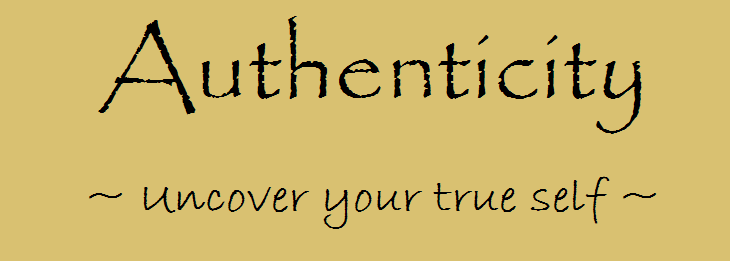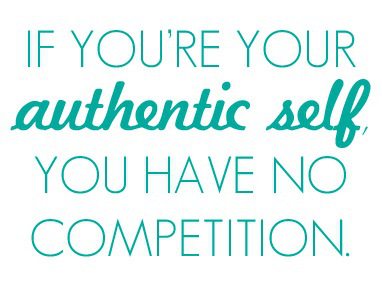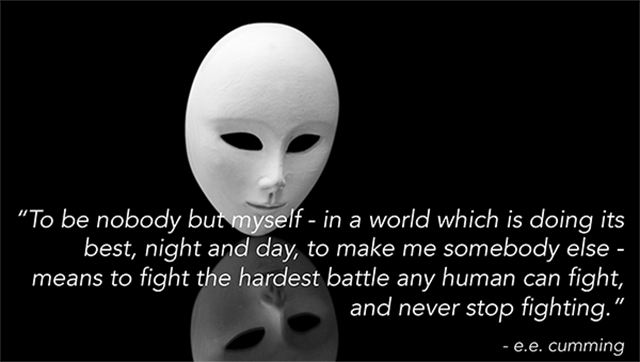Authenticity
Authenticity ( of gr αὐθεντικός authentikós "real"; late Latin authenticus " guaranteed, reliable ") means authenticity in the sense of " found to be original ." The adjective to authenticity is called authentic.
- 4.1 existentialism and existential philosophy 4.1.1 Sartre
- 4.1.2 Heidegger
General
Authenticity refers to a critical perception of quality content ( objects or people, events or human activities ), which presupposes the contrast between appearance and reality as a way to deception and forgery. As authentic applies such content, if both aspects of perception, the immediate appearance and very being, are found to be in compliance. The divorce of authenticity from the supposedly Real or Fake can be regarded as a specifically human form of the world - and self-knowledge. Probation of authenticity very far-reaching culture techniques have been developed to try to construct the criteria of authenticity for a particular subject area normative (re - ).
Forms of authenticity
Archaeological and historical authenticity
Authenticity of various documents collected artifacts (for example, works of art, components, coins, documents ) means that the to be examined object actually comes from the people, authors or sources from which it claims to come, so neither fake nor false attribution. A classic example from the field of classical philology is the so-called Homeric question. With the resources of linguistics the authorship of Homer is checked against the traditional attribution. At the same time in the context of classical studies the historical authenticity (the actual existence) of Homer and described in these documents venues and events with the tools of historiography and archeology checked ( Troy debate ).
In contrast to the scientific method, the authenticity of the Holy Scriptures of the Church is defined canonically.
Hermeneutics: Mens Auctoris and interpretatio authentica
The Greek Church Fathers translated authenticity, the Latin word auctoritas, which is preserved in the German language as authorship or authority. For basics of hermeneutical exegesis ( interpretation of the text ) is the question of the author's intention ( mens auctoris ) and the concept of an authentic interpretation which is to be distinguished from aberrant or heretical, non- authentic interpretations.
Rhetoric
The rhetoric negotiates the authenticity question on the text layer and the level of oratorical performance ( performance ). It is a production that seeks to hide their Inszeniertheit and thus to generate a authenticity or reality effect ( cf. the principle of dissimulatio artis ). Authenticity is not a property that is simply inherent in a text or a person to understand, but as a result of an attribution process that is to be attributed to the rhetorical intention.
On the text layer is created authenticity by concealing the constructed nature of the text, here are media such as film or photography very successful. In terms of oratorical performance, the concept of authenticity is in a close relationship with the ethos of a person, in the rhetoric of the Orator.
Music
In music, among other things, certain church scales are referred to as authentic, as opposed to the Church plagal scales: Authentic here is the original trend-setting to which the plagal stands in a merely modifying subordinate dissipation ratio.
In popular music authenticity is often translated as " Streetcredibility ". The guarantee on the own is mainly from the fan base ( "Peer Group" ) adopted, including the often understood to be a congruence to their own living conditions. This congruence to be deciphered in terms of the music. If one goes into the Popular Music from the musical, this is already an economic decision, an economy of attention that would suggest in pure sales confirmation, were it not also the moment of resistance against the culture industry, which is often the case the public appeal guarantee course comes. Also Streetcredibility has therefore only secondarily to do with sales. Where recycling machinery is aware of popular music is given credibility. This can also on other occasions be the case, for example, when joint commitment of many musicians against the Iraq war in 2003 but music must not interfere in business or politics to credible. 's Image of the on political and social issues disinterested can to its authentic form of help. Authenticity in Popular Music is a sensitive scale, it responds positively allergic to attempts of artificial adaptation - it is a truth and honesty scale for mediation of sincerity, which measures the levels of musical creativity as well as the conditions very closely. What is guaranteed is not only the adequacy of musical expression, often added the living conditions of artists. Superstars are often faced with the problem of how to generate authenticity only from overall social topoi that escape for styles typical (in the sense of subcultures ) them. Streetcredibility is a modern instrument. In the early blues, for example, you would rather speak of authenticity, while hip-hop is more talk of Streetcredibility. So authenticity in popular music, an individual ( subjective) scale, Streetcredibility a collective ( intersubjective ). The most effective elements for the reconstruction of Streetcredibility in popular music are often live elements, as for example in the song " Monument " (2004) the band Wir sind Helden are embedded. In one of the official video releases of the songs of the chorus is sung at one point the audience ("You have us a monument built "). There is also a video presentation that strongly oriented to the documentation of stage and touring experience. Another video release of the same song delves deeper into the - typical for authenticity and Streetcredibility in Popular Music - substantive implications of the song text.
Right
The law is called the authentic published by the legislature itself text of a provision. In contrast, there are other pronouncements or publications such as textbooks or comments that are not legally binding, contrary to the authentic version of the text.
A well-known example of this are the headings of paragraphs in most German laws. In the authentic version of the laws ( in Germany only the announcement in the Federal Law Gazette ), the individual paragraphs often no title, while containing many text editions from publishers non- authentic (ie unofficial and therefore not legally binding ) Headings. Such supplements are usually indicated by square brackets as non- authentic.
Austria is the first European country to look at the online version of the Federal Law Gazette ( the Legal Information System of the Federal Chancellery ) instead of the paper, also published as authentic.
A statutory interpretation ( exegesis ) may have the status of so-called authentic interpretation, if the legislative body itself, especially in the parliamentary legislative materials, she has expressed.
Computer science
In the information security authenticity refers to the properties of authenticity, accountability and trustworthiness. The review of an alleged property is called authentication. Through authentication of data origin is demonstrated that data can be associated with a given transmitter, which can be made possible by digital signatures.
Based on the problem of Byzantine Generals can examine many issues related to the authenticity of information. In this scenario, besiege several generals who do not trust each other, Byzantium and can send messages. We are looking for algorithms for the secure transmission and verification of these messages because the sender or an entire message may be forged from another, lost messages intercepted by courier or can be replaced by fake messages.
Didactics
The subject didactics is meant by authenticity, that the present material (eg, interview, movie, news broadcast, newspaper articles, sign, etc.) that uses a teacher, was not designed or modified for the classroom.
In foreign language teaching situations and tasks are then considered to be "authentic" when the students they learn in school and classroom situation as directly -real, or at least accept it as true to life, so that they can transfer what they have learned in the extracurricular life of the world.
The didactics of history distinguishes between various forms of authenticity by Hans -Juergen Pandel.
- People and event Authenticity: specifies whether persons or events depicted actually exists.
- Source authenticity: indicates the extent to which a source meets the requirements of authenticity.
- Type authenticity: indicates the extent to which people / characters invented perhaps, but in the historical context nevertheless persuasive (Example: The fictional Hitler - boy in the young adult novel ).
- Experience authenticity: is the extent to which experienced in texts and perceived was actually perceived by the author so. Pandel notes that this kind of authenticity with the "usual source of historical resources " is hardly detectable.
- Representation authenticity: indicates the extent to which a displayed event reflects typical epoch other incidents / events.
Marketing
Within the strategic brand management brand authenticity is defined as " truthfulness of the proclaimed brand value proposition ." The value proposition is perceived by the buyers if they have the impression that the brand is not outwardly different from what it is as truthful.
In cultural studies discourse
Rolf Lindner approached this subject with the "idea of authenticity ". He sees the question of the authenticity of the base discourse of cultural anthropology. In the current discourse contributions, it is assumed that cultural authenticity questions should be achieved by dramatic renderings of action ( thus also by productions ), in contrast, it was assumed earlier that authenticity occurs only where nothing is staged.
After Manfred Hattendorf authenticity can also be dependent on the different dimensions of perception. So something can in a certain context to be authentic, in a different but again not. Thus, authenticity is dependent on the interaction of several variables. Hattendorf compares the reception of authenticity with the conclusion coming a contract. First, provides an organizing entity to a Communicat. The recipient is the with his knowledge, experience and perception specific to the side. The relationship of the two is characterized by a reciprocal influence. Now returns the instance ordering incentives to attract the interest of the recipient. Through specific authenticity signals a reception can be set in motion that causes a contract in the best case. With this knowledge, reveals to us that something is authentic, if the confidence of the spectator is obtained. If this is not the case, then it is perceived as untrustworthy. Thus authenticity is always dependent on the individual. With this understanding, Hattendorf is at the heart of cultural studies discourse and authenticity makes it clear that it is difficult to draw a dividing line between staged (false ) and authentic ( genuine).
Authenticity of persons
Applied to persons authenticity means that the actions of a person is not determined by external influences, but is due to the person himself. Peer pressure and manipulation, for example, undermine personal authenticity.
The social psychologist Michael Kernis and Brian Goldman distinguish four criteria that must be met so that you can experience themselves as authentic:
- Consciousness - An authentic man knows his strengths and weaknesses as well as his feelings and motives for certain behaviors. Only through this self-reflection, he is able to experience his actions consciously and influence.
- Honesty - This includes to look the real environment in the eye and also to accept unpleasant feedback.
- Consequence - An authentic man acts according to his values. This applies to the priorities set and also for the case that he thereby einhandelt disadvantages. Hardly anything seems hypocritical and inauthentic as an opportunist.
- Sincerity - Authenticity means a willingness not to deny its negative sides.
An entity known as authentic person has a particularly "real". It gives a picture of yourself, which is perceived as real, lusty, unbent, unsophisticated in the viewer. This must not be the real properties of the Were looking at themselves. Also attributions of observers can cause these impressions and act as part of a successful production. Is the staging of an exaggeration, it can act cliched and kitsch or appear skillfully than artistic.
Philosophy
Both in terms of a conceptual description ( Aristotle, Plato ) and in the form of an exemplary embodiment (Socrates ) authenticity has been known in ancient philosophy. An orientation to the concept of "authenticity" is still described by many authors as intellectual history moment of the modern age and as a development since the late 18th century. In the field of aesthetics, for example, will now, as an influential thesis Lionel Trilling, art is no longer seen as correctly following a rule canon, but as a means of self-exploration. In ethics ( in a very broad sense) if it were in orientations to "authenticity", such as Charles Taylor, a "child of romanticism." Here is an extension and modification of earlier versions of " individualism ", as that of Descartes ( Even Think before traditional teachings ) or Locke ( person before social Inpflichtnahme ) would be arranged, including note the sociality of the individual.
Existentialism and existential philosophy
In many existentialism authors attributed the concept of "authenticity " plays an important role.
Sartre
Jean- Paul Sartre's understanding of authenticity is controversial in Sartre 's research. With Sartre being insincere way, " even for a very large number of people in the normal aspect of life to be.": 124 It arises from the so-called complicit reflection. At the center of studies of his conception of authenticity is the following paragraph: " In short, there are two authentic conversations: the one by which I recognize the others as the subject, through which I get to objectness - that's the shame; and by which I apprehend myself as the free design, through which the other for the other be - comes - this is the arrogance or the assertion of my freedom with respect to the object other. But the pride - or vanity - is an unstable feeling insincere ": ie 519 Sartre distinguishes between insincerity ( mauvaise foi ) and authenticity.. This distinction is fundamental determination of the human being as a " for-itself, [ ... ] this is what it is not and that's not what it is " basis.
The insincerity is thus a self- self - deception of by the human reality is a not true, but it seems advantageous His white, trying to accept it at the same time as accurate or mediate. The insincerity is opposed as the antithesis honesty. According to Sartre, this is ultimately a "His Ideal ": 140ff. the man can not reach, so he especially can not be not be honest and because, as is " for-itself " free to design yourself. Honesty is therefore even disingenuous, because the human reality an awareness of them have, this ideal is not to achieve.
Authenticity is a term which it refers in this context that in the human reality due to the experience of their own object -in- the -world by recognizing the others a sense of shame is caused as a subject in Sartre. This sense of shame is authentic insofar as it represents the tangible expression of an original relationship to others and since it takes place at the level of pre-reflective thinking, allows no further design. The shame is there and can not be turned off by an attitude. But here it must be understood that Sartre speaks of an original shame, the possibility for everyday union modesty results.
Heidegger
For Heidegger are "authenticity " and " inauthenticity " two basic alternatives how subjects can behave to each their own being: " The inauthenticity can [ ... ] existence after its fullest concretion determine in its busyness, Inspired awareness, interestedness, capacity for enjoyment. ": 42f inauthenticity is " dazed Dasein other in Man" from, it goes " besorgend in a world". 176 " Conversely, the actual existence is not something that floats over the fall - the everyday, but existentially only a modified taking such. ": 179 In the reception of Heidegger often were the terms" authenticity " and " authenticity " made little differentiation side by side or was, for example, "Authenticity " translated as " authenticity ".
Heidegger's notion of "authenticity " is a concept whose fitness is questioned about the justification of a normative ethics often. Instead, it used a lot of critics of Heidegger, if it were a formal concept that could not prevent also very problematic concretions, as indeed for Heidegger's own problematic positioning among other things, have applied to the fascist ideology.
Under the umfänglicheren confrontation with Heidegger's notion of "authenticity " Theodor W. Adorno counts of essays published in 1964 " jargon of authenticity ". Adorno writes about it:
" The suffix " - ness " [ ... ] appeals to faith, it already wore that content in it. The mere Relations category is fished out and turn issued as concrete; the highest would be according to this logic, which is quite what it is. The repristinierte Plato Platonic as the authentic, of any one thing, even the lowest, then assigned his idea and not the pure conformity of the thing with this confounded at least in the middle period with the good. In the name of contemporary authenticity but also a torturer could sign all sorts of ontological claims for compensation, provided only that he was a right torturer. The primacy of the notion of the thing now is, moved by the alliance of authenticity with " mineness " in the pure detail, as artificial as once the haecceitas late scholasticism of Duns Scotus, which the indissolubility of Diesda himself, whose non- Universale- its makes for Universal, a paradigm ontologization the ontic. "
Late modernity
After the discourse analytical diagnosis of Michel Foucault is the concept of "authenticity" typical of subjectivation of modernity. She explained that the reference to a " mode of being of its compliance with certain themselves subject". In contrast, Foucault argues for a multiplicity of forms and practices of self- respect and self- design. He illustrates this example with reference to Sartre's claim that we " really and truly we must be self " and on the analysis of literature. Sartre was the " creative work " (such as a Baudelaire ) tied back " to a specific relationship to oneself", " to a self-reference of the author " and thereby distinguished only two forms: "authenticity " within the meaning especially moral " sincerity" or Not authenticity. Instead, suggests Foucault a reverse perspective ago: Sun, " one should perhaps the kind of relationship he has to himself, conceived as a creative activity that makes up the core of his ethical activity. " - " From the idea that we are not self- is given, in my opinion, can only one practical consequence can be drawn: we need to establish, produce and arrange them as a work of art ".
Such criticisms of the classic-modern concept of "authenticity" also carry many other analysts and theorists of late modernity (if often called " postmodernism " labeled ) into the field. During this time, the concept of authentic inauthenticity falls as the name of the game with the Authentic.
At least since the 1990s, but also find defenses of the "authenticity " concept eg in aesthetics or ethics. Charles Taylor about has, inter alia, with respect Trilling on a defense and elaboration of an " ethics of authenticity" developed.
Political Philosophy
In political philosophy, the question arises of authenticity as a question about the true intention ( authentic in this sense is one who knows his true will and after that is ). Here localized Charles Taylor three basic positions.
- There is no relevant distinction between a true and a non- true will. Freedom is understood as negative freedom as the absence of external obstacles ( Thomas Hobbes, Jeremy Bentham ).
- There is a personal self, an inner freedom in the formation of a true personal will. This true will is in fact recognized only by the person themselves. Here freedom is already identified as inner freedom. The subject is the final authority on the question whether it is itself free ( John Stuart Mill ).
- There is a true will, which the person does not own or only distorted possibly perceive. Other people can but recognize this true will of the person. The subject is no longer the supreme authority on the question whether his needs are authentic or not, whether it is free (Jean -Jacques Rousseau, Karl Marx).










